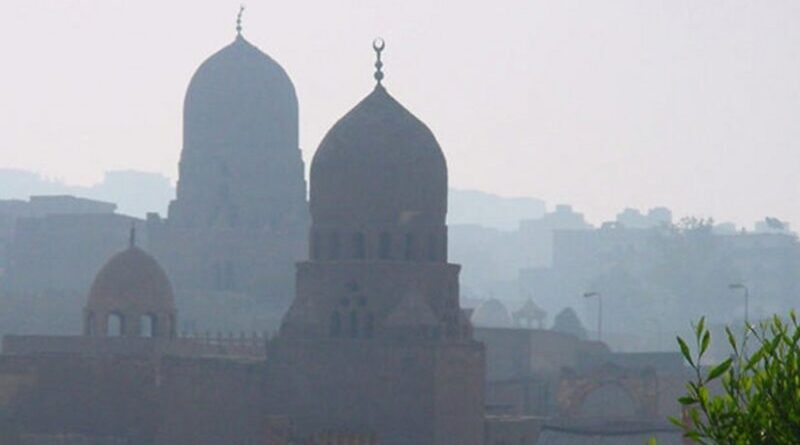Egypt: Elections Herald Beginning Of New Era – OpEd
By Arab News
By Osama Al Sharif
In many ways the biggest story for global media this year is the Arab Spring; a euphemism for the spectacular phenomenon of spontaneous popular uprisings that have toppled despotic regimes in Tunisia, Egypt and Libya.
This geopolitical tsunami continues to strike in other countries such as Yemen and Syria and its effects have been felt elsewhere in the Arab world as well.
But now that the dust is settling in Tunisia and Egypt, where free legislative elections were held in the past few weeks, the features of a new political reality are becoming comprehensible. In Morocco, where the regime was quick to respond to popular demands, a similar outcome has emerged. In these three countries the Islamists have made historic gains at the ballot box. They are now in control of the political process as they move from opposition to governance.
The Arab Spring has released what has been dubbed as the “Islamic Giant” from its shackles. For decades Islamist parties have been persecuted, banned and used as a pretext to justify authoritarian rule at home by various Arab regimes. Fear of Islamist resurgence and the unfair association with terrorism and violence convinced many Western governments to look the other way as Arab rulers vacillated on promises to introduce democracy and respect human rights.
It is a self-fulfilling prophecy that voters in Tunisia, Egypt and Morocco have elected Islamists to power. Persecution of Islamists, who have never been tested, endeared them to the majority of electorates. On the other hand, leftist, liberal and nationalists parties have made modest gains as they were seen to have been in cahoots with toppled dictators.
It is now officially the era of Islamist parties, whose political stands vary from moderate to extreme. In Tunisia and Morocco two moderate parties, Al-Nahda Movement and Justice and Development Party (JDP), have taken over. Both have vowed to work through a coalition with leftist and liberal parties, and both have underlined their commitment to preserving the civic nature of the state.
But in both countries there are fundamentalist parties and groups that demand straight forward implementation of the Shariah law; in effect abolishing the secular and semi-secular natures of Tunisia and Morocco. Each country will have to chart it own way as it tries to find a pragmatic formula to appease the majority of citizens.
In Egypt, early results from the first round of Lower House elections have stunned observers. The moderate Muslim Brotherhood (MB) has expectedly taken a comfortable lead in the ballots, but the ultra-conservative Salafists came in second place with around 25 percent of the votes. The Egyptian Coalition, an alliance of liberal and leftist parties came in third. The achievement of the Salafists, who have never contested elections before, is a grim reminder that not all Islamist parties share the same vision. The Salafists are calling for Shariah implementation and turning Egypt into an Islamic state.
With two more rounds to go, and further elections of the Upper House to follow, the final tally is still far away. But it is clear that Egypt’s next Parliament, the first to be elected since President Hosni Mubarak was overthrown last February, will be dominated by Islamists.
The MB and its political arm, the Freedom and Justice Party (FJP) have been quick to distance themselves from the goals and objective of the Salafists. They did this to calm the ruling military council and other secular parties and movements in the street. It is more likely that they will follow the example of Tunisia and Morocco by moving to the center in an attempt to salvage the political process and make it more inclusive.
And since this was Egypt’s first free elections since the 1952 military coup which overthrew the monarchy, it was expected that a frustrated populace would vote for extremist parties. And as we go into 2012 we will have three parallel experiments in three countries where Islamists and their partners will chart a new political course.
It will take months, if not years, to make definite judgments of the performance of these politicized Islamist parties. By then one would expect similar results to materialize in Jordan, Yemen, Libya and even Syria. The Islamist component will remain powerful and influential in the wake of the Arab Spring and its aftermath.
But the Islamists, who may adopt an existing model of governance like that of Turkey or chart a new one, are taking the helm at critical times. They will have to face enormous political, economic and social challenges. They will have to battle unemployment, poverty, corruption and underdevelopment in virtually every country where they will manage to lead. It is not an easy task. But what matters today is to see if these Islamist parties will embrace democracy in good faith, or use it as mean to assume power. They must prove to all citizens that they are committed to pluralism, peaceful transfer of power, respect of human rights and accountability.
We stand at the verge of a political transition of shattering proportions. It will eventually decide the future of the region, but more importantly it will determine the veracity of political Islam.
— Osama Al Sharif is a journalist and political commentator based in Amman.

